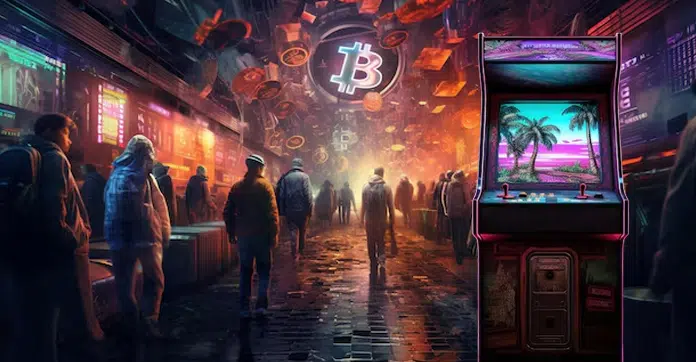
Bitcoin, the first cryptocurrency in the world, has revolutionized finance and redefined gaming. The digital platform of Bitcoin and decentralization connects virtual and real number games. In online casinos, bitcoin facilitates secure payment and in-game purchasing, while in real-world number games, it enables wagering, betting, and other forms of gambling. This article examines how Bitcoin is becoming increasingly significant in both virtual and real-world numbers games, thus influencing the convergence of digital and physical gaming experiences.
Bitcoin Integration in Virtual Number Games
Online Casinos and Gambling Platforms:
Bitcoin is a popular method of payment on online casinos as well as gambling platforms, which have provided a safe way for players to indulge in various gambling activities. Bitcoin transactions are highly private and, hence, more secure than traditional banking systems, making them attractive to gamblers under strict international gambling laws. Additionally, Bitcoin eliminates intermediaries such as banks due to its decentralized nature, leading to fast transactions with lower fees. With this feature, people can deposit their bitcoins into their casino accounts, place bets on games like roulette, poker, blackjack, or even slots, and then withdraw their winnings without interruptions. By integrating Bitcoin, online casinos expand their customer base, inflowing new players who like the anonymity offered by cryptocurrencies along with convenience.
Blockchain-based Gaming Platforms:
Introducing blockchain-based gaming platforms has stimulated further incorporation of Bitcoins into the virtual number game sector. These gaming arenas are built based on blockchain technology, which ensures trust among users by securing all operations within decentralized autonomous organizations (DAOs). As a result, these platforms operate via affiliated blockchains, fostering interactivity between participants from around the globe. Accordingly, Bitcoin has become integral to blockchain-based gaming platforms, acting as a central currency for acquiring game items and services within these systems. Other game aspects may attract bitcoins, such as winning contests or finishing missions that lead to some specific stages. Also, blockchain technology makes the game fair and transparent because all transactions are stored in blocks that cannot be altered. Adding Bitcoin to blockchain-based gaming platforms creates new opportunities for players to convert their gaming into a real-world market for virtual goods and services. As blockchain gaming becomes more popular, Bitcoin has emerged as a gateway between the two types of number games, shaping the future direction of gaming and entertainment.
Adoption of Bitcoin in Real-world Number Games
Lotteries and Sweepstakes:
Bitcoin is being increasingly adopted by conventional lotteries and sweepstakes, converting them into worldwide accessible digital lottery systems. For instance, with Bitcoin lotteries, people can engage in any lottery using cryptocurrency instead of traditional money. Compared to standard lotteries, these Bitcoin ones have several advantages, such as higher security levels, increased transparency, and easier accessibility. Also, there is improved trust among participants due to public verifiability through blockchain technology, which protects lottery results from tampering with them. What’s more, geographical boundaries cease to exist in a Bitcoin lottery, giving anyone across the globe an opportunity to win large sums of money that can change one’s life forever. Furthermore, purchasing lottery tickets or receiving prize winnings in bitcoins’ also explains why bitcoin-based lotteries are gaining popularity among gamers who prefer modern and transparent play.
Skill-based Number Games:
This extends to skill-based number games where players can test their knowledge and abilities on various challenges such as trivia, puzzles, and math-based questions. They differ from traditional gambling in rewarding players with their luck, which diverges from skill-based games. In participating in such games, Bitcoin assumes the role of currency through which individuals can stake bitcoins and win rewards. You can earn Bitcoin rewards according to your performance in these games, thus making it more interesting for a player who can achieve certain levels. Importantly, blockchain technology ensures fair gameplay and transparent reward distribution since all transactions, as well as outcomes, are recorded on the blockchain and cannot be altered or manipulated.
Conclusion
Finally, Bitcoin’s integration into online and real-life number games is causing the gaming industry to take on new shapes, changing its face completely. Bitcoin has changed how people engage in gaming activities, from online casinos to blockchain-based gaming platforms, conventional lottery systems, and skill-based number games. This will make Bitcoin ideal for gaming due to its decentralization, transparency, and security, offering greater control over funds and transactions. As Bitcoin continues gaining acceptance and integration within the gaming ecosystem, it is increasingly important to bridge the virtual world with reality through it.


